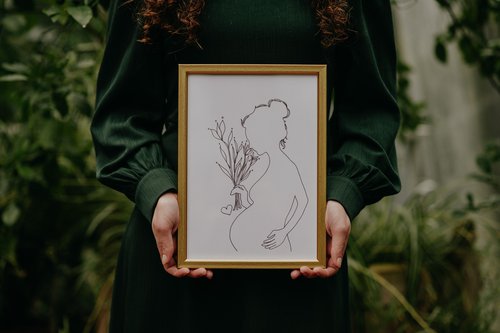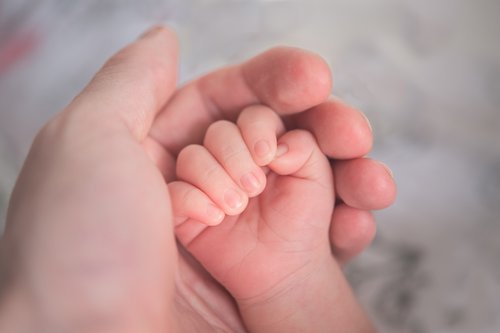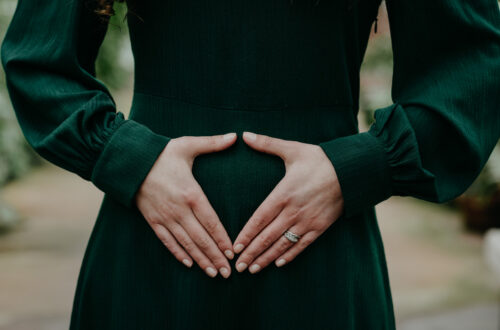
Pregnancy and Covid-19 – What we’ve gathered so far
We are living in interesting times. COVID-19 (aka coronavirus) has quickly changed the landscape and, with the media producing new information about it every minute, it can be hard to filter through all of it to find clarity.
With such a wave of information and concern permeating through our homes via the news, it can also be an anxious and unsettling time, something that any pregnant woman would like to avoid.
To try to filter and combine in one place the information available specifically for pregnant folk, I thought I’d write this blog post, in the hope that it will help any mamas (and indeed any parents)-to-be out there.
It’s worth remembering that this is a novel virus, with new information being gathered all the time. That being said; here’s what we know at the time of writing of how COVID-19 may affect those expecting and their babies, based on the guidance shared by the Royal College of Obstetricians and Gynaecologists (RCOG), NHS guidance, and my own research.
I’m pregnant. What does this mean regarding coronavirus?

The three Royal Colleges (the Royal College of Obstetricians and Gynaecologists, the Royal College of Midwives and the Royal College of Paediatrics and Child Health) have all agreed that ‘there is currently no new evidence to suggest that pregnant women are at greater risk from coronavirus (COVID-19) than other healthy individuals’[1].
The RCOG expect the majority of pregnant women who happen to contract the virus to experience mild to moderate cold/flu like symptoms, though they also go on to advise that if you have an underlying condition (e.g. asthma or diabetes) you may be more unwell if you have coronavirus.
What about my baby?
The three Royal Colleges also agree that there is currently no new evidence to indicate that pregnant women can pass the infection to their unborn baby.
There’s been one case in the UK recently where a baby tested positive for coronavirus soon after birth, but it is unclear if they were infected in the womb or after birth (more likely).
Remember that the placenta is an amazing organ that is very good at protecting your baby from harm.
How do I reduce the risk of getting coronavirus?
Wash your hands thoroughly and regularly (so, you know, what most of us were already doing anyway!), especially when coming back home or arriving at work.
You may also wish to consider ways of boosting your immune system, such as:
- eating foods rich in vitamin C, zinc and anti-inflammatory properties
- getting plenty of rest and sleep
- exercising
- keeping hydrated
- getting fresh air (even if it’s just an open window), and
- soaking up some sunshine to top up on your vitamin D whenever possible.
Other advice by the NHS on how to prevent getting the virus (or other kinds of infection, really) include:
- use hand sanitiser gel if soap and water are not available
- cover your mouth and nose with a tissue or your sleeve (not your hands) when you cough or sneeze
- put used tissues in the bin immediately and wash your hands afterwards
- avoid close contact with people who have symptoms of coronavirus
- only travel on public transport if you need to
- work from home, if you can
- avoid events with large groups of people
What if I think I may have coronavirus?

The RCOG advice is that, if you are pregnant and you have:
- a high temperature, or/and
- a new, continuous cough
You should stay at home for 7 days. Avoid going to a GP surgery, pharmacy or hospital, and you don’t need to contact the NHS to tell them you are staying at home.
You should then contact the maternity unit looking after your pregnancy to inform them that you have symptoms suggestive of coronavirus, particularly if you have any routine appointments in the next 7 days.
Call NHS 111 if:
- you are struggling to cope with your symptoms at home
- you get worse
- you don’t get better after 7 days
If you have concerns about your or your baby’s wellbeing whilst staying at home, contact your midwife or – if out-of-hours – your maternity team, so you can get further advice.
I’ve tested positive for coronavirus. What now?
If you have a confirmed diagnosis of coronavirus, then the advice is to let your midwife or antenatal team know.
You are likely to be advised to recover at home if you have no symptoms or mild symptoms. If your symptoms are more severe, then you might be advised to go to hospital to seek treatment.
As a precaution, you will be offered a scan following your recovery.
How may it affect my birth?
The RCOG states that there is currently no evidence to suggest you cannot give birth vaginally, or that a caesarean birth would be safer if you suspect or know you have coronavirus. As such, your birth intentions should be followed as closely as possible, and based on your preferences.
There is currently no indication that you cannot have an epidural if you suspect or know you have coronavirus, if that’s your wish. It is believed that gas and air may increase the spread of the virus, and so your birth team should be able to discuss your options with you in early labour to ensure you are aware of the pain relief options available to you.
Remember you can ask for more information about your options to support you in making an informed choice. Remember also that there are other ways of managing intensity in labour, such as free movement, a safe and cosy environment, aromatherapy, vocalisation, etc.
Can my baby get coronavirus from me?
The RCOG advises that there are currently no reports of women who – after being diagnosed with coronavirus during their third trimester of pregnancy – have passed the virus to their babies while in the womb.
If you have suspected or confirmed coronavirus, you will be offered coronavirus testing for your baby.
Can I still breastfeed my baby?
 Yep! Yes to both if you have suspected or confirmed coronavirus at the time of birth, and yes if you develop or suspect you have coronavirus whilst breastfeeding.
Yep! Yes to both if you have suspected or confirmed coronavirus at the time of birth, and yes if you develop or suspect you have coronavirus whilst breastfeeding.
There is currently no evidence to suggest the virus can be passed on through breastmilk. Your breastmilk will provide your baby with antibodies and other immunity-friendly goodies that will enhance their own immune system. Good hygiene practices will also further reduce any risk of infection.
The RCOG states that ‘the well-recognised benefits of breastfeeding outweigh any potential risks of transmission of coronavirus through breastmilk.’
What about my mind and heart?
Keeping your mind and heart healthy and happy is as important as keeping your body healthy, so here are Aberlour’s top 10 tips for mental health:
- Be Active: healthy body, healthy food, healthy mind
- Nature is nurture: get outside and enjoy the sunshine
- Try something new: take an interest in a new hobby, course or activity [keep an eye out for online sessions at this time, like yoga for pregnancy, mediation, etc.]
- It’s good to talk: pick up the phone [or message a friend, a relative, your doula]
- Believe in yourself: be proud of who you are and what you’re good at
- Make time for yourself: “me time”
- Get your 40 winks: a good night’s sleep helps emotional well-being
- Reflect: remember something you’re proud of having achieved each day
- Don’t take on the world in a day: small steps, small targets
- Don’t be afraid to ask for help: talking about your feelings is part of staying healthy
And finally
You got this, mama!
This may be an unsettling time, but this too shall pass. Appreciate and value the little things, like nice cups of tea, a good book, a smile from across the room, a good chat with a friend 💜
And get in touch if you feel that would help 🙂
You May Also Like

Traditional Chinese Medicine & Reproductive Health – An interview with Charlotte Machin
July 18, 2021
Doulas in a time of Social Distancing
April 8, 2020
